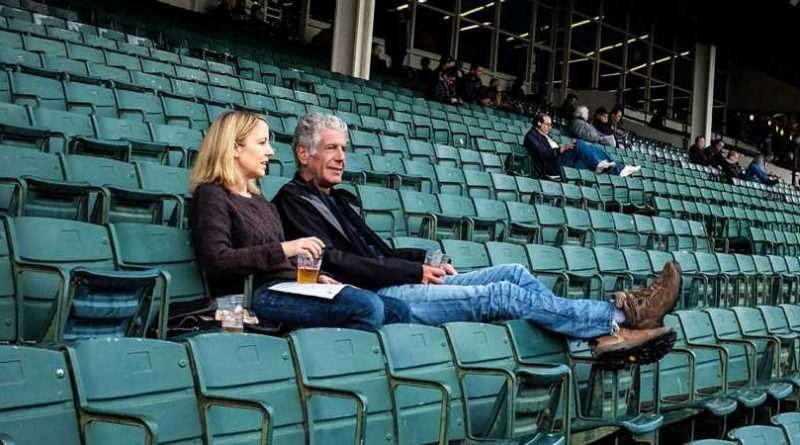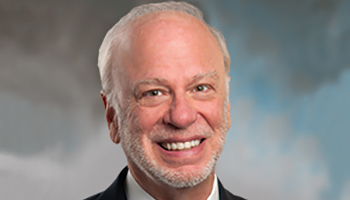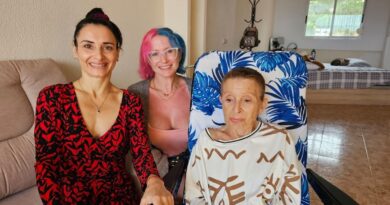Anthony Bourdain's Assistant Shares What It Was Like Working on His Final Book Without Him
From 2009 until his death in 2018, Laurie Woolever was Anthony Bourdain's assistant (or lieutenant, as he called her) in writing, editing, and various other tasks. Yet the two met only once to discuss what's now "World Travel: An Irreverent Guide," a new posthumous guidebook that Woolever completed through her own research and by reaching out to those who also knew Bourdain.
Here, Woolever shares what it was like finishing the book without Bourdain, how he shaped her own perspective on traveling, and more.
Travel + Leisure: Why was "World Travel" still published after Bourdain's passing?
Laurie Woolever: "At some point, after he died, I had a conversation with Tony's agent, who is also my agent. She was working closely with his estate. Everyone agreed that this is what Tony would have wanted. And there was a way that we could thoughtfully, sensitively, and tastefully move ahead with the project.
Tony had such a huge amount of output — close to 20 years of traveling for television and writing books and articles — and there was so much material out there. This was a way to curate some version, or some part, of his legacy."
T+L: Along with details on where to eat in certain destinations, the book features guest essays. Why did you include them?
"Part of the plan, initially, was for Tony to write a bunch of essays. He had some ideas, and I'm sure that we would have developed more as we went on in the process.
It made a lot of sense to pull in people who knew Tony, especially those who had traveled with him and were part of his crew. Or, people he got to know on the ground who were able to show him a place that he visited.
It also made perfect sense to me to talk to [Tony's] brother, Christopher, because he had not exactly the same, but very complimentary memories. Because they had traveled together, both as children and as adults, I thought it was a really useful perspective. Christopher is also quite articulate and literate, and funny and eloquent in his speech. And his ability to recall details is very, very sharp."
T+L: Did you have to make changes during the process?
"I tried to stay very close to the blueprint that we laid out in that one conversation. If places that Tony had remembered and loved maybe didn't exist anymore or had changed so significantly, it wouldn't be fair to represent them as the places that he once loved.
I went to Rome in 2019 to do some research, and there were a few places that he had recommended that just weren't the same. But there were some places that his Rome fixer, Sara Pampaloni, took me to that were very representative of [the ones] that he loved in earlier years. I included those in the book, with a note about how they weren't places that he had visited. But if you're looking for that rustic Roman trattoria experience, these are those places to go to.
There are some countries that he really loved, but most of what he did there wasn't something that anyone could go do. He had an amazing experience in Iran, but almost everything he did there was in somebody's home or wasn't easily replicable for a tourist. Especially in a place where I hadn't been to myself, I didn't want to go too far out on a limb in coming up with new places that I had none of his perspective on."
T+L: In the book, you mention the "Bourdain effect." How did this impact the places he visited?
"It's interesting. I was going over some of the entries in the Spain chapter and there's this dish at one restaurant that Tony really loved — seared wild mushrooms with a raw egg yolk and foie gras. He talked about it on Anthony Bourdain: Parts Unknown. He also said in our planning conversation that he went back every time he visited Spain, and had first been there many years earlier.
When I was researching that place online, everybody that wrote a review talked about that dish. I was thinking, does everyone really love this dish, or do they love it because they saw Tony talk about it on TV, and then it became this self-fulfilling prophecy? He had that impact.
In the best case, the Bourdain effect can be really galvanizing for a restaurant and give some places a second life. Then, I think in some cases, it can sort of pigeonhole a place. Or, a place that was kind of quiet and understated, and only known to locals, can become overrun with people who just want to do what Tony did.
I don't think he ever set out to say these are the definitive places that you have to go to in any one city. It was more like here's what my producers and I found — use it as a starting point, but definitely explore on your own."
T+L: How did Bourdain change your perspective on traveling?
"I had traveled a fair bit before I worked with him. Once my son was a little older, I made a plan to go to Colombia. I said to Tony, 'I'm going to Cartagena in a few weeks — what did you really love there?' These were the kind of emails and phone calls he would get from friends all the time. So, he said, 'Oh, you're going to Colombia. You know, if you want, you can start coming along with us on shoots. Pick one shoot a year and I'll pay your expenses, and you can just kind of hang out and see what we do.'
I started going along once a year on a shoot with the crew. We were in Hue, in central Vietnam. I was encouraged to go out on my own and I was a little nervous. Tony said to find a motorcycle guide — they're everywhere and safe — and see what you can. I found a guy [and] trusted him by my gut. He ended up being my private tour guide for a couple of days. I got on the back of his motorcycle and went to temples and had lunch in the countryside.
Every place we went to afterward — I went to Japan with him twice, Sri Lanka, Manila, and Hong Kong — I had that sense to just push myself a little bit out of my comfort zone. And something amazing always happened. I am so appreciative that he gave me that courage."
Source: Read Full Article




